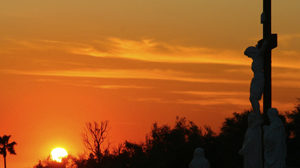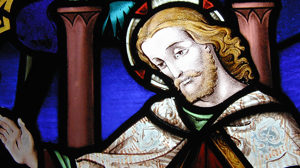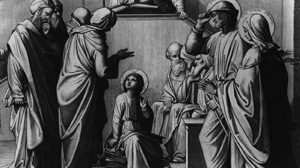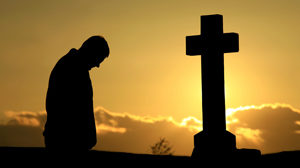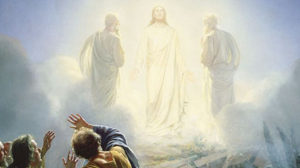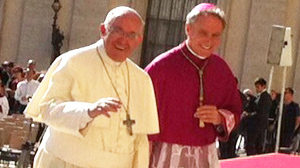Baruch 4:5-12, 27-29
Luke 10:17-24
Reflection:
You provoked your Maker with sacrifices to demons, to no-gods; you forsook the Eternal God who nourished you, and you grieved Jerusalem who fostered you. Baruch 4:7-8a
How do we provoke our Maker today? What are the no-gods that we bow down before? There are many things in America that we worship. We worship money, or the happiness we think money can buy for us. We worship status and power and beauty. We worship freedom and food and drink and pleasure and choice.
As we look closely at our lives, let us see if anyone or anything has taken first place before God. He alone is worthy to be praised, adored and worshipped. So, how can we keep God on the throne of our hearts?
We can look at where we spend our time and energy. If we spend all of our time working to make more money so we can buy things, but we don’t take time to pray and help others, we are out of balance. Loving God means that we also love our neighbor, and God will use us to bless them. Many of us are simply overcommitted and by cutting back on activities, we could make more time for God. It may be helpful to remember that by saying yes to one thing, we are saying no to others. Pray before you say yes, even to good things!
How do we spend our leisure time? The average American watches four hours of TV per day. That adds up to two months/year and by age 65 you will have watched nine years of TV! If we fall into that category, surely we can take one of those hours and spend it with God instead, or use it to be involved in a ministry to help others. Our time on earth is very short indeed!
Later in Baruch we read: As your hearts have been disposed to stray from God, turn now ten times the more to seek him. (Baruch 4:28) May we seek God above all else, and let Him use us to do the most good we can while we still have time.
Janice Carleton and her husband Jim live in Portland, OR and partner with Passionist Fr. Cedric Pisegna in Fr. Cedric Ministries. She is the mother of 4 grown children and grandmother of 6. Janice also leads women’s retreats and recently published her second book: God IS with Us. Visit Janice’s website at http://www.janicecarleton.com/ or email her at [email protected].

